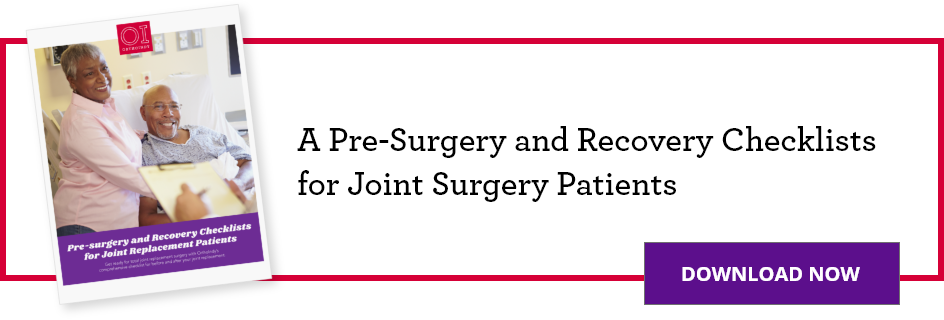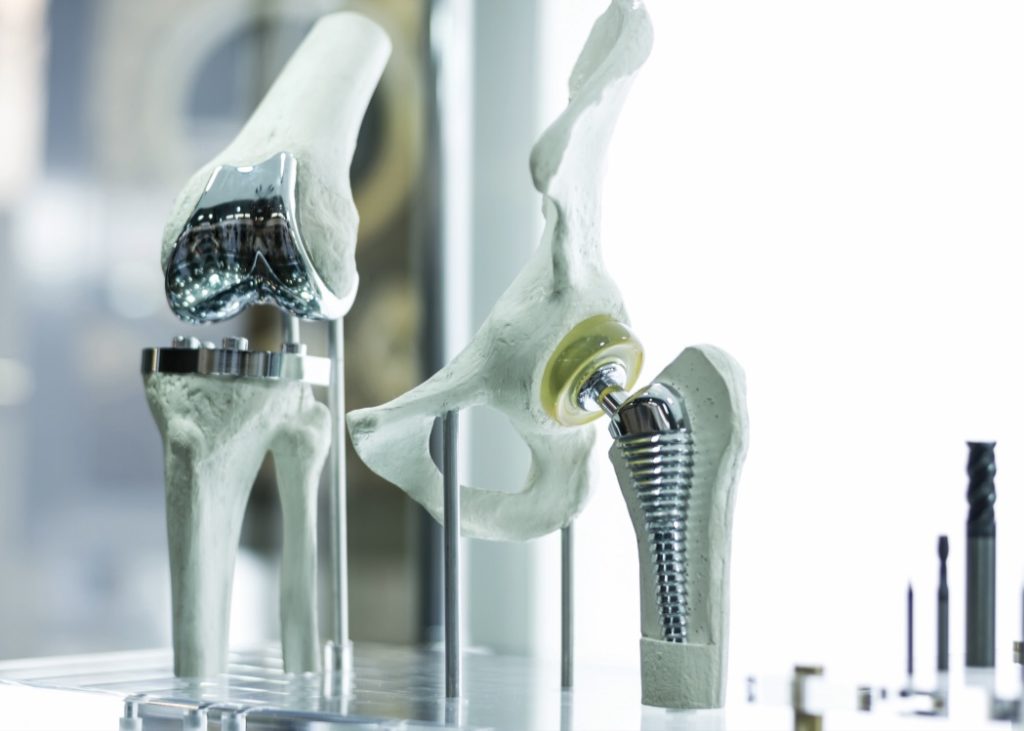THIS POST IS PART OF THE ULTIMATE GUIDE TO KNEE REPLACEMENT AND THE ULTIMATE GUIDE TO HIP REPLACEMENT
OrthoIndy total joint replacement surgeon, Dr. Patrick Millikan shares what you need to know about hip and knee replacement surgeon.
When were the first hip and knee replacement surgeries performed?
The first knee replacement surgery was performed in the 1960s. The original implants focused on resurfacing the end of the thigh bone and the top of the shin bone, thereby removing arthritis and replacing it with artificial materials.
The first knee replacements often relied on the ligaments within the knee for stability and could not stabilize themselves if the ligaments were injured.
As time has passed, the implants for knee replacement surgery have also advanced. This has resulted in more robust and longer lasting joint replacements. In addition, the surgical techniques used to place the implants have also significantly improved. This allows for shorter surgeries, shorter hospital stays and a quicker return to normal levels of activities.
Hip replacement surgeries began in the late 19th century. During this time, many of the patients were veterans who had received traumatic battlefield injuries, resulting in significant diseases in their hips. Many different materials were used in these early surgeries, including ivory, glass and various types of metals. The materials and surgeries advanced rapidly in the 20th century, resulting in the modern implants used today.

What are the benefits of a hip or knee replacement surgery?
In general, joint replacement surgery seeks to remove the pain and limitations that come with arthritis. The goal of surgery is to relieve joint pain and get you back to full range of motion.
Unfortunately, this surgery does not give you back the hip or knee you had when you were young. However, it can allow you to return to activities and experiences you’ve been unable to enjoy because of your joint pain.
What are the signs that someone may need a joint replacement surgery?
Daily knee or hip pain and stiffness are common symptoms of arthritis. Often times, this is most severe in the morning and improves throughout the day. However, too much activity can also increase the pain.
The only way to know if arthritis is the cause of your pain is to obtain X-rays of your knee or hip and discuss your pain with a doctor or care provider.
If you and your provider determine that arthritis is the problem, then you may decide that a joint replacement is the right thing for you.
What are the risks of a hip or knee replacement surgery?
The risks of joint replacement are the same as any surgery. The two major risks are bleeding and infection. Overall, the risks are quite low, and many steps are taken to prevent both of these complications.
A risk specific to hip replacement is dislocation, where the ball comes out of the socket. During your recovery, you will be instructed on how to easily prevent this problem by avoiding certain leg positions.
Why might someone need to see a joint replacement physician?
There are many causes of hip and knee pain. However, in order to help determine what is causing your symptoms, you may need to seek help from a specialist. If arthritis is what is causing your pain, then you will likely be referred to a joint replacement surgeon to discuss non-operative and operative treatment of your pain.
To schedule an appointment with Dr. Millikan please call 317.802.2845 or learn more about joint replacement surgery at OrthoIndy.
Schedule an appointment
Your well-being is important to us. Click the button below or call us to schedule an appointment with one of our orthopedic specialists. If your injury or condition is recent, you can walk right into one of our OrthoIndy Urgent Care locations for immediate care. For rehabilitation and physical therapy, no referral is needed to see one of our physical therapists.





